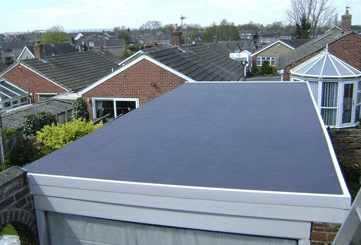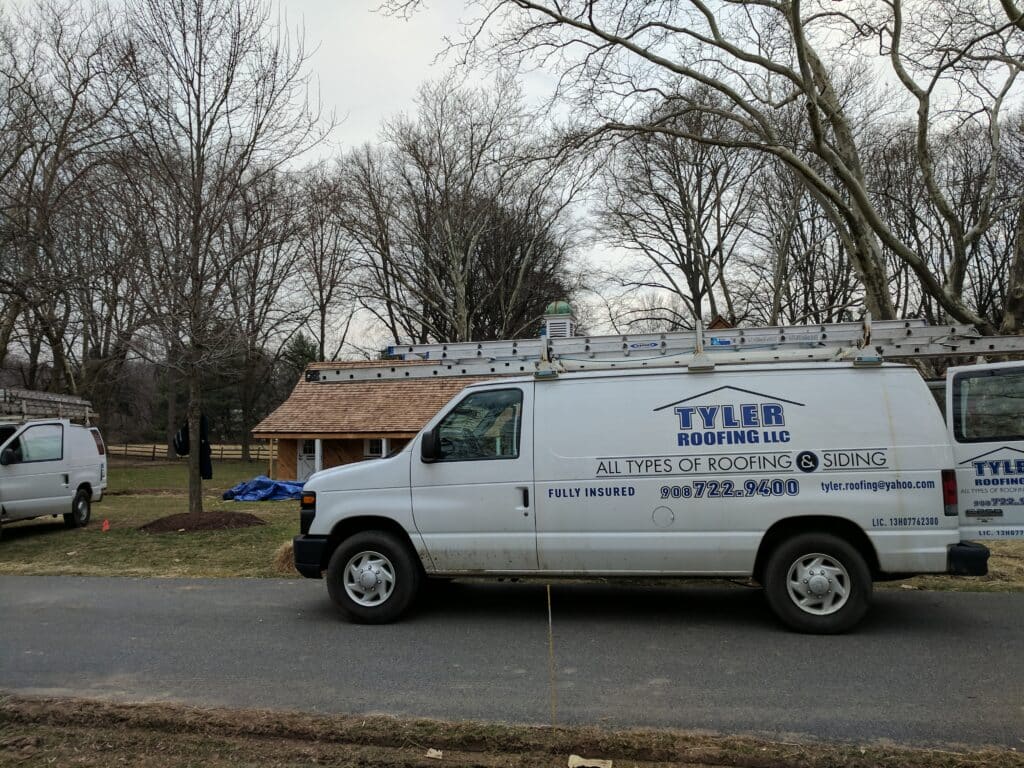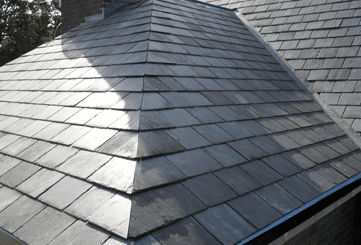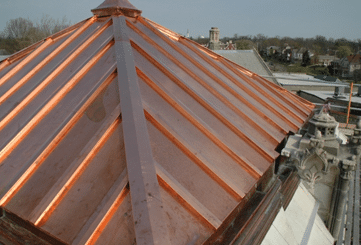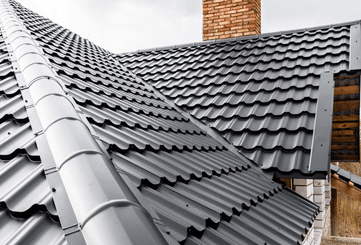Get a New Flat Roof in New Jersey Today!

Request Free Consultation
Table of Contents
ToggleSection 1: Discovering Flat Roofing
As seasoned professionals in the roofing industry, we recognize the significance of gaining a comprehensive understanding of flat roofing before embarking on any projects. This section will explore what flat roofing entails and its advantages and disadvantages. Additionally, we will explore the typical materials utilized in flat roof construction.
What is Flat Roofing?
Flat roofing is a roof style with minimal to no slope or pitch. Unlike traditional pitched roofs, which have an angled design for water runoff, flat roofs are either horizontal or nearly horizontal in structure. While they are commonly seen in commercial buildings, they can also be found in residential properties.
Benefits of Flat Roofing:
- Cost-effectiveness: Flat roofs require fewer materials and less labor than pitched roofs, resulting in more budget-friendly options.
- Accessibility: The absence of steep slopes makes it easier for maintenance personnel to access the roof for repairs or inspections.
- Additional Space: Since an attic space beneath a flat roof is not needed, extra usable space is available for rooftop gardens, solar panels, or HVAC equipment installations.
- Energy Efficiency: Flat roofs can reduce energy consumption through proper insulation and reflective coatings by maintaining more relaxed interiors during hot summers.
Drawbacks of Flat Roofing:
- Drainage Challenges: Without adequate slope, water may accumulate if not drained adequately through gutters and downspouts.
- Maintenance Demands: Regular inspection and upkeep are essential to prevent leaks, as debris buildup could lead to clogged drains or damage to membrane layers.
- Lifespan Variability: Depending on material selection and installation quality, certain types of flat roofing may have shorter lifespans than sloped roofs.
Common Materials Used in Flat Roofing:
- Built-Up Roofs (BUR): Comprising multiple layers including Bitumen (asphalt), felt sheets, or fiberglass mats saturated with asphalt/Bitumen, topped with a protective layer of gravel or mineral granules.
- Single-Ply Membrane: These membranes are crafted from synthetic materials like EPDM (ethylene propylene diene monomer), PVC (polyvinyl chloride), or TPO (thermoplastic olefin). They come in large sheets and provide excellent waterproofing capabilities.
- Modified Bitumen is similar to BUR but incorporates polymer modifiers for enhanced durability and flexibility. It is often applied as rolls or sheets heat-welded together.
- Metal Roofing is typically constructed from steel, aluminum, or copper. It offers longevity, fire resistance, and resilience against extreme weather conditions.
By grasping the fundamentals of flat roofing—its benefits, drawbacks, and everyday materials—you’ll be better equipped to decide your roofing requirements.
Section 2: Why You Need a Professional Flat Roofing Contractor
As seasoned professionals in the roofing industry, we recognize the significance of equipping you with all the essential details to make an educated choice regarding your roofing requirements. In this segment, we will delve into the advantages and disadvantages of flat roofing.
Advantages:
- Cost-Effective: Flat roofs are typically more budget-friendly than other roof types. The materials utilized for flat roofing are often less costly, making them a financially savvy option for homeowners.
- Accessibility: A flat roof provides convenient access for routine maintenance tasks like gutter cleaning or damage inspections.
- Energy Efficiency: Flat roofs boast exceptional insulation properties, which reduce energy consumption and utility expenses.
- Versatility: Unlike pitched roofs that restrict design possibilities, flat roofs offer flexibility in creating additional outdoor living spaces or incorporating solar panels.
Drawbacks:
- Drainage Issues: One prevalent downside of flat roofing is its proneness to drainage problems due to its lack of slope. Proper installation and regular upkeep can help alleviate these concerns.
- Limited Lifespan: While well-installed and maintained flat roofs can endure many years, they generally have a shorter lifespan than pitched roofs.
- Potential Leaks: If not adequately sealed or maintained, water accumulation on a flat roof can result in leaks over time.
It is crucial to consider both the advantages and drawbacks when deciding whether a flat roof is suitable for your residential or commercial project in New Jersey.
Section 3: How to Find a Flat Roofing Contractor in New Jersey
When locating a trustworthy flat roofing contractor in New Jersey, you should consider some vital factors. Here are some expert tips to guide you in finding the perfect professional for your roofing project:
Local Expertise and Experience:
Selecting a contractor with extensive knowledge and experience working on flat roofs in your area of New Jersey is essential. Local contractors understand the unique challenges posed by the region’s climate and weather conditions, ensuring they can effectively offer tailored solutions that meet your needs.
Credential Verification:
Before hiring any contractor, conduct thorough research into their background, credentials, and reputation. Look for certifications or licenses that showcase their flat roof installation and repair expertise. Request references from previous clients to gauge their work quality and customer satisfaction.
Online Search Platforms:
Use online search platforms like HomeAdvisor or Angie’s List to find contractors. These platforms allow you to explore contractors’ profiles, read reviews from past customers, compare prices, and request quotes directly.
Seek Recommendations:
Reach out to friends, family members, neighbors, or colleagues who have recently engaged professionals for flat roof repairs or installations in New Jersey for personal recommendations on reliable contractors.
Schedule Consultations:
Once you’ve shortlisted potential contractors based on qualifications and reputation, schedule individual consultations with each one. Use these meetings to discuss project requirements thoroughly while evaluating how well they communicate with you about the process.
Pricing Estimates and Payment Terms Discussion:
Before finalizing your decision, obtain detailed cost estimates from each contractor to ensure transparency regarding pricing structures and potential additional costs during the project timeline. Then, discuss payment terms that align with your budget preferences.
By diligently following these expert tips—prioritizing local expertise and experience, verifying credentials and references, utilizing online search platforms, seeking recommendations, scheduling consultations, and discussing pricing estimates and payment terms—you can find a reliable flat roofing contractor in New Jersey offering high-quality services tailored precisely to your needs! With an expert by your side handling everything efficiently, rest assured that your flat roof is secure!
Section 4: Questions to Ask Your Potential Flat Roofing Contractor
In your quest to locate a top-tier flat roofing contractor in New Jersey, the key lies in asking the right questions during your initial meeting. This step is paramount as it equips you with vital information necessary to make an educated decision. Here are some crucial queries to pose:
What is your process for installing or repairing flat roofs?
Understanding the contractor’s approach and methodology provides valuable insight into their expertise and professionalism.
How long will the project take?
Having an estimated timeline enables you to plan effectively and set realistic expectations.
Can you provide references from previous clients?
Requesting references lets you gain insights into other customers’ experiences with the contractor, shedding light on their artistry and customer service.
Do you offer any warranties or guarantees on your work?
A reputable contractor should back their work with warranties or guarantees safeguarding against potential issues post-completion.
What type of materials do you use for flat roofing projects?
Inquiring about the materials used can impact your roof’s durability, longevity, and overall quality.
Are there any additional services included in your package?
Some contractors may include extra services like regular maintenance or inspections, enhancing ongoing roof care.
How do you handle unexpected issues or changes during a project?
Understanding how a contractor manages unforeseen circumstances during construction is crucial, and ensuring they have contingency plans is vital.
Can I see proof of licensing and insurance coverage?
Confirming proper licensing ensures adherence to industry standards while verifying insurance coverage, which protects both parties in case of accidents or damages on-site.
What payment terms do you offer?
Discussing payment terms upfront prevents misunderstandings later; inquire about payment schedules and accepted methods.
You’ll gain deeper insights into each potential contractor’s capabilities, reliability, and professionalism by posing these inquiries. Take detailed notes during consultations for comparison when making your final decision. Remember: It’s not just about finding a cost-effective option; it’s equally important to feel at ease with their communication style, level of expertise, and overall approach toward flat roofing projects. Trust your instincts when selecting a contractor that aligns seamlessly with your needs and expectations!
